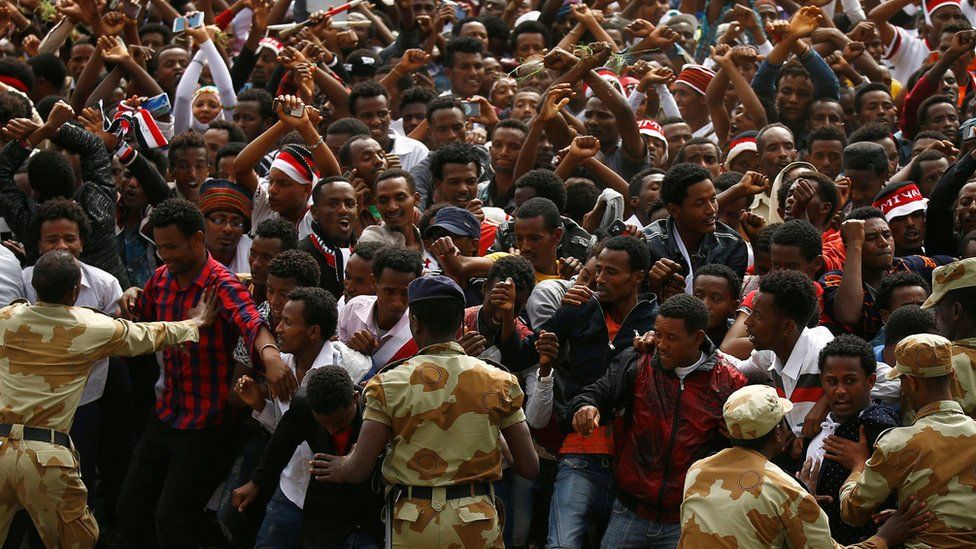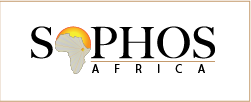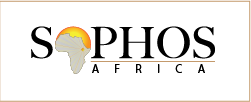
Justified Fears II: Where are we going?
By Desta Heliso
A rhetoric that singles out Tigres (those whose origin is the region of Tigray) against the rest or a certain people group in Ethiopia is becoming increasingly toxic and stirring up hostilities. The central assertion in the narrative is that the Tigres are the dispossessors, the privileged, the powerful, the cruel masters and, therefore, the villains, while the rest are the victims, the subjects, the powerless, the disadvantaged and the dispossessed. This assertion is grossly generalised, wholly uncritical and dangerously emotive. If this poisonous and antipathetic rhetoric continues, the current sporadic attacks against the Tigres and others who are minorities in a given territory in our land could get worse and lead to complicated situations. It is Tigres today; tomorrow it could be Oromos or Wolaytas or Amharas or anyone else. So we must stop and think.
The main background for the current narrative is the geo-political and socio-economic arrangement introduced and adopted since the early 1990s. There is uneasiness about this arrangement in different quarters for one reason or another. Some would like it to be reviewed through peaceful process. Others would like it to be reversed through unrest and violence. The latter use political manipulation of ethnic loyalties as a means to achieve this goal. They reinforce these loyalties through newly constructed narratives. As most Ethiopians have not had an opportunity to develop a more sophisticated awareness of how ethnic narratives are constructed, there is a common tendency in many quarters to uncritically accept those narratives.
The result of all this is that respect for the dignity of others is undermined or even eroded. Those who don’t have respect for the dignity of others do not affirm the fundamental human equality. This, in the case of our country, is resulting in dehumanisation (as a friend recently warned) of our fellow Ethiopians. Once we dehumanise a person or a people group in our minds, it is easy to treat them with disdain and derision. Respect for the dignity of others is a great barrier against ethnic or religious hostility that could potentially lead to atrocity and cruelty. The increasing loss of this barrier, however, means that ethnic hatred and fear is on the increase in our country. This, I fear, is threatening the core of the fabric of our society, our neighbourly relationships and, as a result, Ethiopia’s existence as a nation of diverse people groups.
Of course, we are not new to ethnic hostilities, but we don’t wish to go back to the olden days, when we treated each other in savage and barbaric ways. If we don’t wish to go back to ancient hostilities, then we must handle the current trends in a careful and mature manner. In order to do this, I propose that we must learn from Rwanda and Yugoslavia. What happened in these countries is not entirely new to many of us but it is useful to briefly describe how the events unfolded in both only less than 30 years ago. Jonathan Glover, in his A Moral History of the 20th Century Humanity (2002), has extensively analysed what happened in these and other countries in the world from philosophical and moral perspectives. My descriptive analysis here is partly based on his discussions that focus mainly on Yugoslavia and Rwanda.
In Rwanda, ethnic hatred led to genocide committed against the Tutsis by the Hutus. There was a widely accepted narrative that the Tutsis came from Ethiopia. This may or may not be true, but the Tutsis gained socio-political and economic dominance. This dominance was further engineered by the then colonial masters (Germany and then Belgium), who also introduced identity cards to reinforce the Hutu-Tutsi divide. But the Tutsi dominance ended with the end of colonialism. The Hutus seized power, oppressed the Tutsis and killed many in the 1960s. The resentment continued. Ethnic hatred and fear was given ample opportunity to grow and violence was allowed to breed more violence.
The Tutsis organised a rebel group and invaded Rwanda in 1990. In 1994, the President of Rwanda, who was a Hutu, died in a plane crash, for which the Tutsi rebel group was blamed without any evidence. Tutsis were denounced and the killing started. Roadblocks were set up; houses were systematically searched and thousands of Tutsis were killed by their own neighbours. Massacres took place in schools and churches. Corpses floated down river to Tanzania and Uganda. All this resulted from propaganda of hatred and fear. Ethnic emotions seemed to have erupted into massacre and full-blown genocide. But why?
Hutus and Tutsis were intermarried. They spoke the same language and had a shared culture. Until Germans and Belgians came, they did not even have identity cards that locked them into being a Hutu or Tutsi. So why did all that happen? The answer is that the Rwandan genocide was a well-planned atrocity by politicians who wanted to keep power. Hutu intellectuals developed a narrative. Politicians used that narrative to manipulate ethnic loyalties to their own advantage. Starting from 1990, for example, ‘The Hutu Ten Commandments’ branded Hutus who employed Tutsis or befriended Tutsi women as traitors. The document also encouraged Hutus not to have mercy on Tutsis. Toxic propaganda that labelled Tutsis as ‘cockroaches’ and ‘scum’ was spread. Hutus were urged to send Tutsis back to Ethiopia by the river (i.e. dead) and wipe them out. Media such as radio, television and newspapers were used to hype up the whole situation. Ethnic emotions were consciously manipulated by the extremist nationalist intellectuals and politicians. The result was the death of almost a million Tutsis and moderate Hutus.
Yugoslavia is another example. It was a federation of three small republics (Macedonia, Slovenia and Montenegro) and three big republics (Serbia, Croatia and Bosnia-Herzegovina). Serbia was mainly Orthodox but had Kosovo with an Albanian majority; Croatia was mainly Catholic but had Serbians; Bosnia had a Muslim majority but had Serb and Croat minorities. All these groups intermarried and lived together. Together they created Yugoslavia. Under President Tito, Yugoslavia was an independent state. Tito tried to ensure that power was equally shared between the different nationalities. However, Tito was authoritarian and did not allow political contest. No opposition was tolerated. The notions of persuasion and compromise had not been allowed to develop.
So even Tito’s construction of the balance of power between the majorities and minorities was creating resentment amongst those who wanted to dominate on the one hand and those who felt that such a balance of power created an opportunity for the tyranny of the majority on the other. Local nationalisms were simmering everywhere. So the system Tito carefully built did not survive his death in 1980. Clashes erupted between the 10% Serbs and the 90% Albanians in Kosovo. The majority Orthodox Serbia could no longer live at peace with the majority Catholic Croatia. When the majority Islamic Bosnia was perceived as a threat, Serbs and Croats joined force against Bosnians. Hostility was inflamed by politicians through their nationalistic rhetoric. This created fear in others, who in turn put on a nationalistic defence.
Like Rwandans, those in former Yugoslavia were trapped in ethnic hatred and fear that was politically manipulated by those who wanted to seize power or cling to power. The system that was built by the colonial masters in Rwanda did not survive beyond their departure. Similarly, the system that was built by Tito in Yugoslavia did not survive beyond his death. The main difference between Yugoslavia and Rwanda is that while Yugoslavia broke up into several nations (including Kosovo), Rwanda did not. But in both nations the politicians used inflammatory rhetoric that stirred up hostility. In Rwanda, the Hutu politicians told the Hutus that Rwanda is theirs and that Tutsis were aliens who should return to their land of origin. In Yugoslavia, Slobadan Milosevic told Serbs that Kosovo is their land and they should die for it. He was against the notion of a state of equal citizens and nations. He was only interested in the Serbian dominance.
Current Ethiopia has a lot to learn from these two nations. I would like to make four suggestions by way of reflecting on my discussion above. First, we must stop inflammatory language that dehumanises the Tigres or any other people group. To refer to anyone as a ‘leech’ or ‘snake’, for example, is dehumanising. We must maintain respect for the dignity of all Ethiopians. It is misguided and morally unacceptable to try to correct the current political confusion by forging ethno-political alliances, creating a ‘villain-victim’ dichotomy and then treating Tigres as scapegoats. This, I would contend, has resulted from a generalised and dangerously emotive narrative, which should be firmly rejected. Intellectuals and politicians who develop and spread such a narrative must learn from Rwanda and Yugoslavia.
Second, ethnic psychology is a fact of life. Ethnic loyalties run deeply in us and cannot simply be eliminated. However, we should equally accept that our sense of identity is not static, as it always evolves. If we accept this reality, we will see our ethnic identification in a different light. I understand myself as a sum-total of identities. This does not mean that I deny that I belong to a people group, but to claim that I have an identity that is limited to belonging to my people group would be a lie. Like almost all Ethiopians, I am a product of complex inter-marital relations by my ancestors. I have also developed identities as a result of my religion, marriage, profession, living in a certain country for a period of time, residing in a cosmopolitan city like Addis, friendships and interactions with those from other cultures and backgrounds etc. So I should always ensure that my ethnic loyalty takes into account this complex reality. If my principles and activities are based on the denial of this reality, then I am on a dangerous road that leads to narrow ethnocentrism. I would humbly implore every Ethiopian to examine herself/himself. In the current climate, I fear that the balance between our ethnic loyalty and the reality of our unity and diversity is being lost. It is only if we keep this balance that we will feel at ease with the principle of unity-in-diversity, without which peaceful co-existence and societal betterment would not be possible in Ethiopia.
In connection with this, third, all of us should always bear in mind that we are human beings before being Hadiya, Wolayta, Oromo, Amhara or Tigre. Ethnic loyalties must take second place to a more fundamental understanding of being human. We ought to submit to values and standards of conduct, where ethnic identity and all other identities are shaped and guided by our common humanity, which transcends all other identities. This understanding enables me to look through ethnic membership to the person behind it and, consequently, to shared identity. As an Ethiopian, I share common humanity and history with this person, irrespective of her/his ethnic origin or religious persuasion. For this reason, Tigres, Wolaytas, Oromos, Amharas and others – I should declare once again – are my ‘sisters and brothers’!
Finally, the ruling party politicians must accept that something has gone terribly wrong in the geo-political and socio-economic arrangement that was engineered two decades ago. The social and philosophical frameworks that underpin this arrangement must be reconsidered and re-evaluated. This must be done in the spirit of collaboration with all other political groups, civil societies, community elders and religious leaders. The principle of tolerance, persuasion and compromise must govern all interactions. And in all interactions, all groups must bear in mind that no-one is all-knowing and no-one possesses universal panacea for Ethiopia’s problems. Even great intellectuals and political leaders are frail human beings with fallen nature and faulty memories. Ethiopians are no different. I call upon the EPRDF leadership and all opposition groups to be open to self-examination and critical scrutiny. They must also adopt a collective thinking that goes beyond creating mechanisms that ensure short-term political and economic survival. For the current situation requires collectively framed constructive answers to the question as to where Ethiopia is going at the moment. This must be done for the sake of the Ethiopia of today and tomorrow; for the sake of our children and children’s children!


